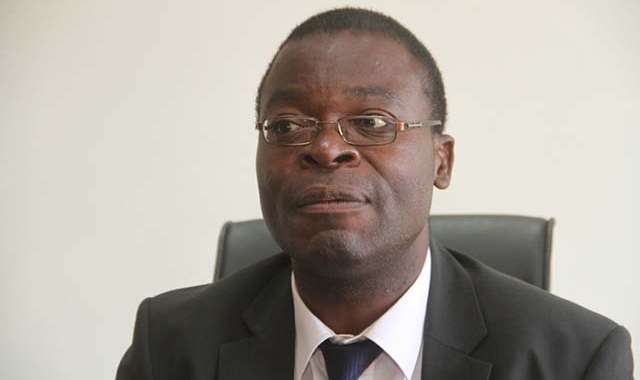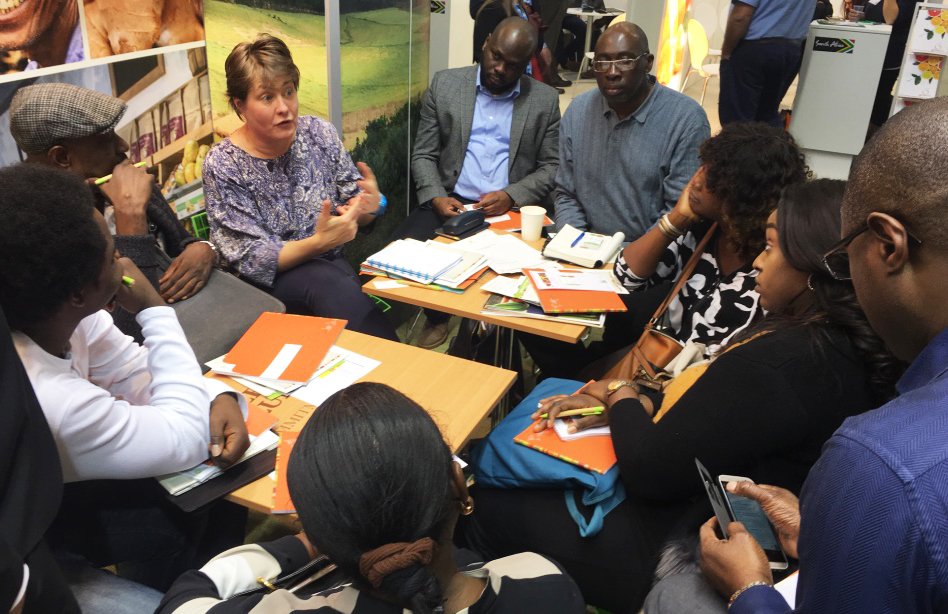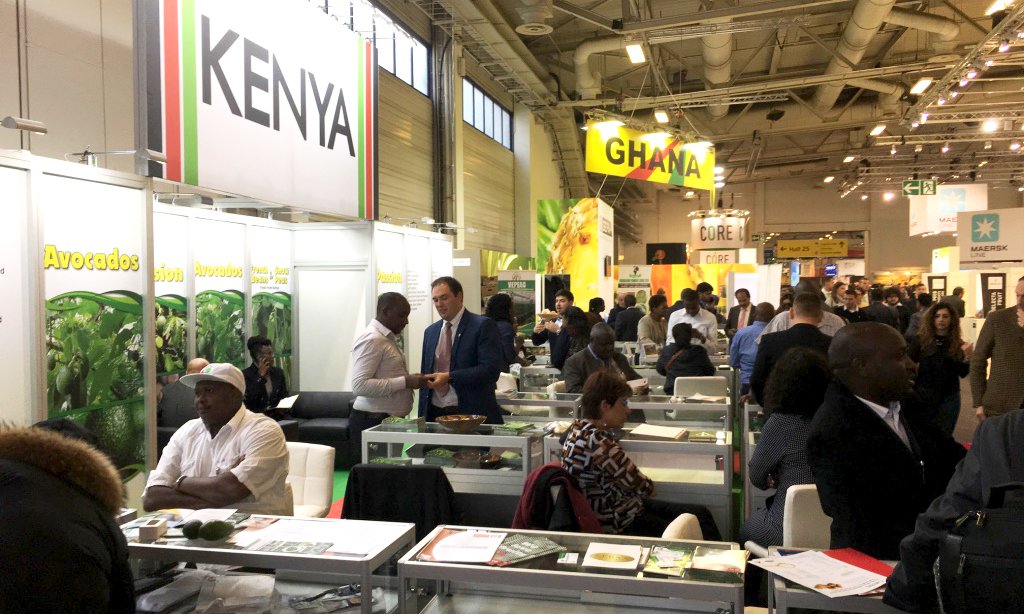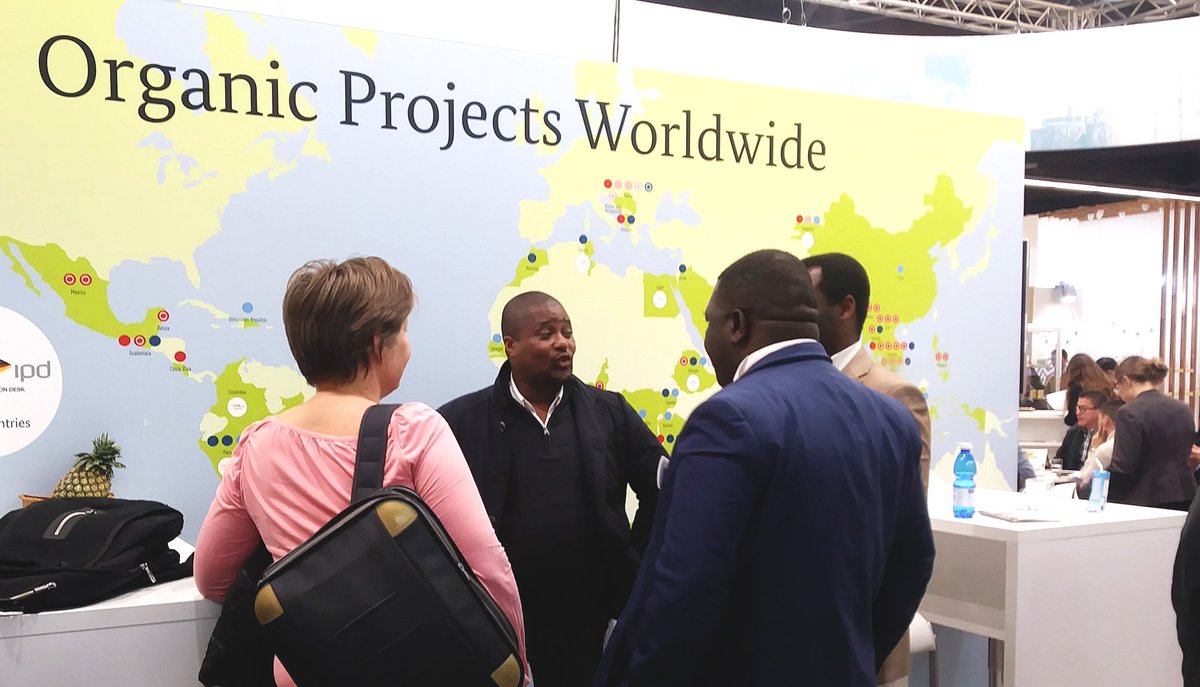Agribusiness
SEED is a global partnership founded by UNEP, UNDP, and IUCN to promote eco-enterprises. The program announces its next replicator
workshop in Ghana on 6th of April. The replicator workshop of one day introduce motivated individuals to proven business models from various countries. Deadline
04 March 2018
Tony Elumelu Foundation — Entrepreneurship Program for Africans 2018
The TEF Program fosters and supports start-up enterprises in Africa. TEF combines mentoring, training, forums, seed capital, and alumni support to individuals in Africa proposing
new business ideas or early-stage companies in sectors that include agriculture, among others. The program is open to citizens and legal residents ages 18 and older in any African country. Deadline
01 March 2018
African Women’s Development Fund — Empowering African Women
The African Women’s Development Fund supports organizations working towards the empowerment of African women and the achievement of gender equality on the continent. To increase income opportunities for women, projects to be supported should seek to work with smallholder women farmers, and address issues of climate change and food security. Applicant organizations must have at least three years of experience, be led by a woman, and have a focus on women’s rights. Applications from the following countries are specifically encouraged: Benin, Burkina Faso, Cameroon, DRC, Ethiopia, Ghana, Guinea, Ivory Coast, Kenya, Liberia, Malawi, Mali, Mauritania, Nigeria, Niger, Senegal, South Africa, Sierra Leone, Tanzania, Togo, Uganda, South Africa, Zambia and Zimbabwe. Applicants may apply for up to US$50 thousand for one year. Deadline 7 March 2018
The Swedish Agency for Development Cooperation (Sida) seeks applications for its Planning Grants program. Grants are awarded to help
entrepreneurs explore new markets and research their technology’s impact on the environment and poverty reduction. The programme’s emphasis is on cleantech products, systems, processes, and services in the following focus areas:
climate change adaptation/mitigation; ecosystem services; renewable energy; water and sanitation; and urban development. Eligibility extends to companies or organisations based in
Kenya, Mozambique, Tanzania, Zambia, Bangladesh, Cambodia, Bolivia, Colombia, Guatemala, Bosnia and Herzegovina, Serbia, Georgia, Moldova and Ukraine. The maximum amount per projects is SEK350 thousand. Deadline
04 March 2018.
International Centre for development oriented Research in Agriculture — International Courses for Agricultural Professionals 2018
ICRA supports education and capacity strengthening in agriculture and the rural sector in the developing world. Among its forms of engagement, ICRA offers specialized training courses each year. Applications are invited for courses that include: “Facing rural innovation challenges –
Linking research to inclusive development for food security” (May-June 2018, the Netherlands); and “
Building agribusiness relations for sustainable profit – Key skills for inclusive business brokerage” (June-July 2018, Nigeria). ICRA’s courses qualify for NFP/MSP scholarships funded by the Dutch government.Deadline
21 March 2018
BMCE Bank of Africa — African Entrepreneurship Award 2018
The African Entrepreneurship Award is a business competition inviting young African entrepreneurs to submit their entrepreneurial ideas in two categories, one of which is “Innovation” for projects and business ideas that aim to solve pressing issues in Africa. This refers to business proposals that innovate to create jobs and improve lives addressing problems in areas such as
food security, water access, sustainable energy, deforestation,and others. Submissions are invited from for-profit businesses managed by Africans who are at least 18 years old. Deadline
30 April 2018
Techstars — Global Accelerator Program for Entrepreneurs
Techstars provides funding and mentorship programs for entrepreneurs. Techstars Impact Accelerator is for for-profit founders building tech to solve social & environmental problems. Techstars Farm to Fork Accelerator is for entrepreneurs focussing on the tech/digital side of food and agriculture. The Techstars Sustainability Accelerator, in Partnership with The Nature Conservancy, is for entrepreneurs with
commercially viable technologies that can rapidly scale to help sustainably provide food and water and address global issues like climate change. Each selected project team receives up to $120 thousand startup investment. Deadline
8 April 2018
African Leadership Academy — Anzisha Prize for Young Innovators 2018
The Anzisha Prize is awarded to young innovators ages 15-22 in Africa who develop and implement
innovative solutions to challenges facing their communities. Past awards include innovations in
energy, agriculture, and ecological consumer products. The grand prize winners will share prizes worth US$100 thousand. Deadline
1 April 2018
Common Fund for Commodities — 12th Call for Proposals
The CFC calls for proposals that advance commodity development in its member countries. Funding is targeted mainly to for-profit organizations and social enterprises for production, value chains, and marketing across a wide group of commodities (
agricultural crops, tree crops, timber, bamboo and rattan, minerals, and others). Deadline
15 April 2018
Global Giving — Crowdfunding Training Opportunity
GlobalGiving is an online platform to raise funds for grassroots projects worldwide across many sectors and themes – including in agriculture, energy, environment, and natural resources. GlobalGiving announces a new Accelerator program that will offer
virtual training in online fundraising and participation in a two-week crowdfunding campaign. The program is open to nonprofit organizations anywhere in the world. Organizations that successfully complete the GlobalGiving Accelerator by raising at least US$5 thousand total from a minimum 40 different donors will earn permanent membership with GlobalGiving, in addition to publicity and bonus prizes. Deadline
1 May 2018
Thought for Food Foundation — Thought For Food Global Challenge
The Thought for Food Foundation invites young teams to develop breakthrough solutions that address the
global challenge of feeding 9+ billion people by the year 2050. TFF Challenge participants can win up to $25 thousand in cash prizes and participate in the TFF Startup Bootcamp, a 12-week workshop for social entrepreneurs. Deadline
4 May 2018
Right Sharing of World Resources — Seed Grants for Women’s Micro-Credit Projects
Right Sharing of World Resources (RSWR) makes seed grants to support income-generating projects led by women. RSWR’s current priorities are grassroots organizations selected states and districts of India;
Quaker groups in Kenya; and grassroots organizations in
Sierra Leone. Projects include many in the production and sale of fruits and vegetables; meat and milk; grain crops; fish; fuelwood; and other enterprises associated with small-scale agriculture and rural livelihoods. Deadline
30 June 2018
Conservation, Food, and Health Foundation — Grants for Grassroots Development
The CFH Foundation makes grants to nonprofit organizations for projects in conservation, sustainable agriculture, and health in low- and lower-middle-income countries of Asia, Africa, Latin America, and the Middle East.
It prefers to support organizations located in low- and middle-income countries, or organizations located in upper-income countries whose activities are of direct benefit low- and middle-income countries. Most recent grants range from US$10 thousand to US$30 thousand. Deadline
1 July 2018
Alexander von Humboldt Foundation — International Climate Protection Fellowships 2018
The Alexander von Humboldt Foundation offers 20 fellowships for young climate experts from developing countries interested in conducting a project in Germany and pursuing long-term collaboration. The fellowship allows future leaders to spend a year in Germany working on a research-based project of their own choice in the field of climate protection. Deadline
01 March 2018.
IUCN-Netherlands — Land Acquisition for Conservation 2018
The World Conservation Union in the Netherlands (IUCN-Netherlands) provides grants up to €85 thousand for the purchase and protection of threatened wildlife habitats and vulnerable ecosystems in Asia-Pacific countries, Africa, and Latin America. The grants are to qualified and experienced local conservation organizations. Deadline
01 May 2018.
United Nations University — Climate Fellowship Programme
The UNFCCC–UNU Early Career Climate Fellowship Programme offers young people from developing countries the opportunity to start their career at the
interface between international climate policy development and research. Fellowships may last from six months to two years. Climate Fellows will be able to work in their home countries or internationally, deploying the valuable experience and insights they have gained during the programme. Qualified women candidates and candidates from least developed countries are especially encouraged to apply. Applications are accepted two times a year. Deadline
16 July – 16 August 2018.
New England Biolabs Foundation — Grants for Grassroots Conservation 2018
The New England Biolabs Foundation makes grants to grassroots and charitable organizations to support conservation of biological diversity; ecosystem services; community food security; and marine environment. The geographical scope focuses on
Ghana and Cameroon in West Africa. Maximum grant size is US$10 thousand. Most grants are US$3 thousand to US$8 thousand. Deadlines
16 March 2018 and 13 August 2018
Fellowships/scholarships/grants
Regional Universities Forum for Capacity Building in Agriculture — Agricultural Scholarships for Africans
RUFORUM is partnering with the MasterCard Foundation to implement the programme “Transforming African Agricultural Universities to meaningfully contribute to Africa’s growth and development”. For the academic year 2018, 45 Bachelor and 15 Master scholarships are available of which 70% will be for
Kenya and Uganda nationals.The aim is to transform African agricultural universities and their graduates to better respond to developmental challenges through enhanced application of science, technology, business and innovation for rural agricultural transformation. In this current call, proposals will be accepted only from Egerton University and Gulu University. Deadline
31 March 2018.
Ghent University — PhD Scholarships 2018
Ghent University grants PhD scholarships to promising PhD students from developing countries who wish to carry out half of their PhD research at Ghent University. Before applying each student needs to find a professor from Ghent University who is willing to act as their supervisor. Supported thematic areas include
biology, veterinary medicine, agricultural economics, water, etc. Deadline
6 March 2018.
Belgian Royal Academy for Overseas Sciences — Research Competitions 2018 and 2019
Each year, the Belgian Royal Academy for Overseas Sciences sponsors a competition to stimulate high-quality research regarding problems inherent in the developing world. The questions for 2018 include one on the use of
remotely-sensed data for assessing the water cycle in developing countries. The questions for 2019 include one on the
impact of urbanization, agricultural, and/or industrial development on natural ecosystems in tropical countries, and another on the technical, scientific or economic implication of emerging countries to the collecting and recycling of residues containing metals. Each award-winning work is granted a prize of €2,500. The deadline for the 2018 competition is
01 March 2018; the deadline for the 2019 competition is
01 March 2019.
Association of Commonwealth Universities — Masters Scholarships 2018
The Commonwealth Master’s Scholarships enable successful applicants to benefit from the expertise provided by universities in low and middle-income countries around the Commonwealth. The program currently offers 13 masters-level scholarships at ACU member universities in 9 countries. Applicants are citizens of Commonwealth countries other than the host country. Subject areas for the masters programs include
agriculture, environment, climate change, and others. Deadline
11 March 2018.
Innovative Methods and Metrics for Agriculture and Nutrition Actions — IMMANA Fellowships, Round 4
Funded by the UK’s Department for International Development (DFID), IMMANA aims to accelerate the development of scientific evidence to support effective policy and investments in agriculture for improved nutrition and health. Fellowships focus mainly on fieldwork in Sub-Saharan Africa and South Asia. Eligible applicants will have completed a doctorate in any field related to
agriculture, nutrition, and/or health within three years of the proposed fellowship start date. Applicants may be of any nationality and have earned their doctorates anywhere. IMMANA strongly encourages applications from female candidates who are citizens of low- and middle-income countries, and applicants who have research or faculty appointments in Sub-Saharan Africa or South Asia. Deadline
1 March 2018.
NextWorldNow Community Investments — Community Grants 2018
NextWorldNow (NWN) is committed to working with community leaders who are solving difficult social problems. This includes social problems related to water, sanitation, deforestation, smallholder productivity, and food security — among other subject areas. Grants are up to US$10 thousand. Deadline
31 March 2018.
Israeli Agency for International Development - Course: Clean Technologies for Economic Development
The course is geared towards decision makers, policy makers and professionals from the fields of
energy, water, waste, agriculture, climate change, infrastructure and economic development.Deadline
23 Feb 2018
Israeli Agency for International Development — Course: Intensive Crop Production
The course is geared towards professionals from governmental and non-governmental institutions, universities, research institutes and/or private sector involved in
agricultural development projects under irrigation as well as in research, extension and/or intensive agricultural production. Deadline
06 March 2018
African Water Association — Research Fellowships for Young Water and Sanitation Professionals in West Africa
With funding provided by the U.S. Agency for International Development, the African Water Association offers fellowships of US$1 thousand for
masters research in water and sanitation. Open until
28 Feb 2018
Taiwan International Cooperation and Development Fund — Scholarships for Higher Education 2018
Subject areas at Taiwan’s participating universities include
tropical agriculture, renewable energy, environmental sciences, conservation and wildlife management, and others. Deadline
16 March 2018
Aga Khan Foundation — International Scholarships 2018-2019
The Aga Khan Foundation supports programs in rural development, broadly defined, in a number of developing countries. Deadline
31 March 2018
New Zealand Aid Program — Development Scholarships 2018
New Zealand’s government provides a variety of opportunities for training and university study through the New Zealand Aid Program, Ministry of Foreign Affairs and Trade. The program has six scholarship schemes, reaching a total of over 90 countries. The priorities for support often include
agriculture, renewable energy, fisheries, disaster risk management, and other areas. Deadline
28 March 2018
Tropical Biology Association — Field Courses for Early-Career Scientists 2018
The TBA sponsors field courses in
tropical biology at the post-graduate level. It currently invites applications for
2018 courses in Kenya and Borneo. Full scholarships will be granted to successful
African and Malagasy applicants for the course in Africa or Madagascar, and to successful applicants from ASEAN countries for the course in Borneo. Deadline
4 March 2018
International Center for Genetic Engineering and Biotechnology — Research Fellowships 2018
The Arturo Falaschi Fellowships Program offers long and short-term fellowships to assist in the training of scientists from ICGEB’s member states, including many developing countries. The fellowships are for research at collaborating universities in
Trieste, New Delhi, and Cape Town. For doctoral fellowships, the application deadline is
31 March 2018. For post-doctoral fellowships, the deadlines are 31 March and
30 September 2018.
Wageningen University — Short Courses: Food Security 2018
The Wageningen UR Centre for Development Innovation offers multiple
short-term courses in the theme “Food Security” in 2018. Courses during the year 2018, and the locations where they will be held, include the following: Milking to potential (May 2018 in the Netherlands); Food systems for healthy and sustainable diets (June 2018 in the Netherlands); Organised farmers as partners in agribusiness (September/October 2018 in the Netherlands); Responsible aquaculture development (November/December 2018 in the Netherlands); among many others. Most courses are open to professionals of government departments, NGOs and civil society organisations, businesses, development agencies, universities and colleges for higher education, and individual consultants. Deadline
April 2018
Nordic Africa Institute — Grants for Guest Researchers from Africa 2018
The Nordic Africa Institute (NAI) provides funding to social science researchers from Sub-Saharan Africa for short-term collaborative assignments at the NAI in Uppsala, Sweden. Female researchers are especially encouraged to apply. The thematic research programs include the topics of economic growth, poverty alleviation, sustainable livelihoods, climate change, and sustainable development, among others. Deadline
1 April 2018
International Plant Nutrition Institute — Scholar Awards for Agricultural Graduate Students 2018
The IPNI Scholar Awards are open to applicants who are graduate students attending a degree-granting institution located in any country with an IPNI program. Applicants in Africa can apply if their research connects with international programs, even if their countries are not in IPNI (see the special criteria for Africans). Awards of US$2 thousand are available to students in the disciplines of
agronomy, horticulture, ecology, soil fertility, soil chemistry, crop physiology, and other areas related to plant nutrition. Deadline
1 May 2018
International Livestock Research Institute — Africa Biosciences Challenge Fund 2017-2018
The Biosciences eastern and central Africa (BecA) Hub awards research fellowships to African agricultural researchers for short-term projects at the BecA-ILRI Hub in Nairobi. The announcement identifies the priority research themes. Candidates should be currently engaged in agricultural research and be affiliated with a national agricultural research system in the eligible countries: B
urundi, Cameroon, Central Africa Republic, Congo Brazzaville, Dem Rep Congo, Equatorial Guinea, Eritrea, Ethiopia, Gabon, Kenya, Madagascar, Rwanda, São Tomé and Príncipe, Somalia, South Sudan, Sudan, Tanzania, and Uganda. Under special partnership and collaboration arrangements, applicants from other African countries are considered for the fellowship. The Fund supports travel, accommodation, stipend, and research costs. Deadline
30 June 2018
AWARDS and O T H E R
Agrinatura travel grants to Tropentag conference 2018
AGRINATURA will support the annual Conference on Tropical and Subtropical Agriculture and Natural Resource Management (Tropentag) with the general theme for 2018: ‘Global food security and food safety: The role of universities’
The conference will be held at the Ghent University (Ghent, Belgium), September 17-19, 2018. Deadline
15 May 2018
Global Federation of Higher Education Associations for Agricultural and Life Sciences — World Agricultural Prize 2018
The Global Confederation of Higher Education Associations for the Agricultural and Life Sciences (GCHERA) supports innovation and leadership in education, research, and outreach in the agricultural and life sciences. This year, two World Agriculture Prizes will be awarded, each to a faculty member from a higher education institution for lifetime achievements in agriculture and life sciences — including but not limited to agriculture, forestry, natural resources, food, bio-based products, bio-energy, rural development, and the environment. The amount of the prize is US$100 thousand, contributed by Nanjing Agricultural University and the Da Bei Nong Group. Deadline
30 April 2018
The King Baudouin African Development Prize aims to reward individuals or organisations who are making an outstanding contribution to development in Africa. The winners receive €200 thousand and the opportunity to promote their cause to international audiences. The Prize will be awarded to Africans or organisations which are founded and led by Africans. Candidates have to be nominated. Self-nominations and applications by individuals will not be considered. Deadline
01 March 2018.
Australian Center for International Agricultural Research — John Allwright Fellowship 2018
ACIAR awards the John Allwright Fellowship for university post-graduate studies in Australia. Applicants are citizens of ACIAR’s priority partner countries who are engaged in an ACIAR collaborative project at the time of application. Each awardee pursues research at an Australian tertiary institution relevant to the project in which the awardee is engaged. Deadline
30 April 2018
World Academy of Sciences — Science Prizes 2018
Each year, TWAS awards eight prizes of US$15 thousand each to individual scientists who have been working and living in a developing country for at least 10 years. The disciplinary fields include
agricultural sciences, biology, and six others. Nominations of women scientists are particularly encouraged. Deadline
15 March 2018.
International Youth Foundation — Global Fellowship for Social Entrepreneurs
The Laureate Global Fellowship, sponsored by Laureate International Universities, recognizes 20 young leaders from around the world who have pioneered solutions to urgent social and
environmental challenges in their communities and beyond. Laureate Global Fellows begin their fellowship experience at a week-long training retreat and gain access to opportunities for needs-based personal and organizational development. Deadline
06 March 2018
Swiss Re Foundation — Leadership Prize in Water Management
The International ReSource Award is a prize acknowledging social entrepreneurial thinking and leadership in addressing social and/or ecological issues related to
sustainable water management practices in developing and emerging countries. Deadline
16 March 2018
The UC Berkeley-11th Hour Food and Farming Journalism Fellowship
The Fellowship presents an opportunity to report ambitious long-form print and audio stories on the full range of
subjects under the rubric of food systems:
agricultural and nutritional policy, the food industry, food science, technology and culture, rural and urban farming, agriculture and the environment (including climate change), global trade and supply chains, consolidation and securitization of the food system and public health as it relates to food and farming. Deadline
15 March 2018
African Leadership Academy — Anzisha Prize for Young Innovators 2018
Past awards include innovations in
energy, agriculture, and ecological consumer products. The grand prize winners will share prizes worth US$100 thousand. Deadline
01 Apr 2018
Boston University: West African Research Association (WARC) — Travel Grants for West African Nationals
The WARC Travel Grant supports African scholars and graduate students for research visits to other institutions on the continent.
Travel grant funds may be used to attend and present papers at academic conferences relevant to the applicant’s field of research; visit libraries or archives in support of the applicant’s current academic work; engage in collaborative work with colleagues at another institution; and travel to a research site. The grant provides travel costs up to US$1,500 and a stipend of US$1,500. The program is open to West African nationals, with preference given to those affiliated with West African colleges, universities, and research institutions. Deadline
15 March 2018
West African Research Association — Travel Grant Program 2017
The WARC Travel Grant promotes intra-African cooperation and exchange among researchers and institutions by providing support to African scholars and graduate students for research visits to other institutions on the continent. Travel grant funds may be used to: (i) attend and present papers; (ii) visit libraries or archives; (iii) engage in collaborative work with colleagues. Deadline
15 March 2018
Indian National Academy of Sciences — JRD-Tata Fellowships for Visiting Scientists from Developing Countries
India’s National Science Academy administers the JRD-Tata Fellowships to support visiting scientists from the developing world and promote South-South cooperation. The program is open to applicants from developing countries (except India) younger than age 45, and who possess doctorate or masters degrees in science or equivalent degrees in engineering/medicine. Past participants have included several in agriculture, biological sciences, and geo-sciences. The fellowship is for three months and includes transportation, maintenance allowance, accommodation, and contingencies. Deadline
30 Apr 2018
The Fiat Panis Foundation makes awards for university thesis and dissertation research in themes of agriculture and natural resources, with a focus on food security in developing countries. The Hans Hartwig Ruthenberg Graduate Award is €7.5 thousand. Deadline
The Barilla Center for Food & Nutrition (BCFN) and the Thomson Reuters Foundation invite
and emerging talent from all over the world to participate in the Food Sustainability Media Award. Applicants may submit written journalism and multimedia (photography, audio and video) contents related to food security, sustainability, agriculture and nutrition. Deadline
.















